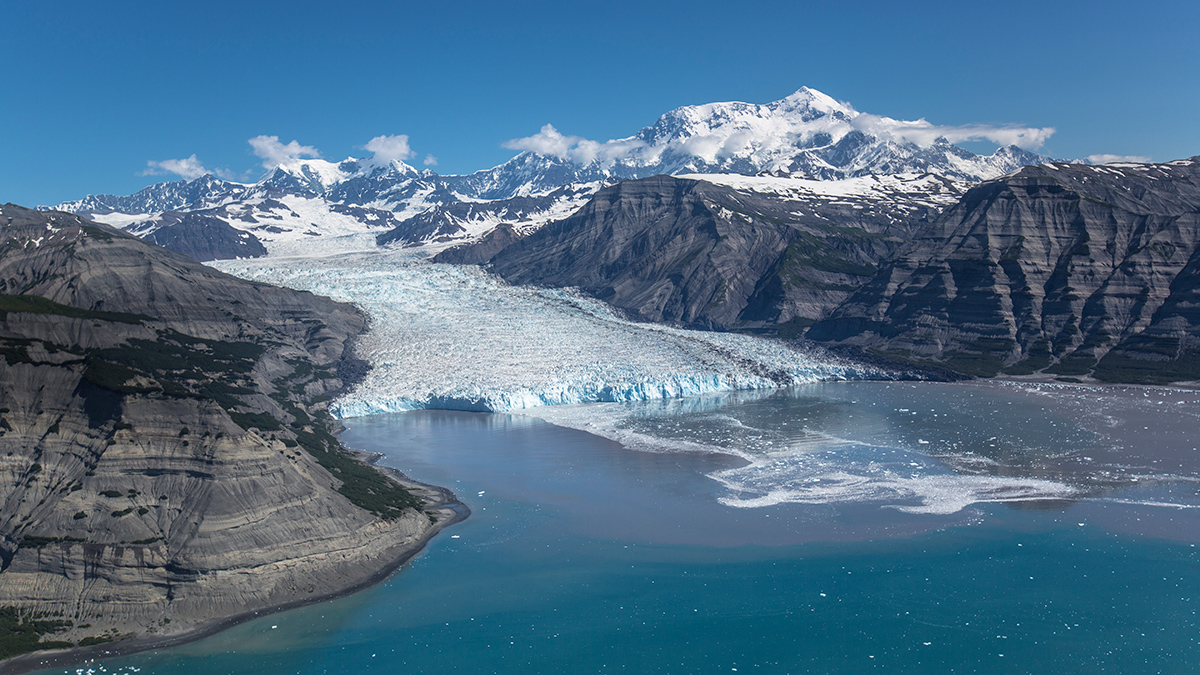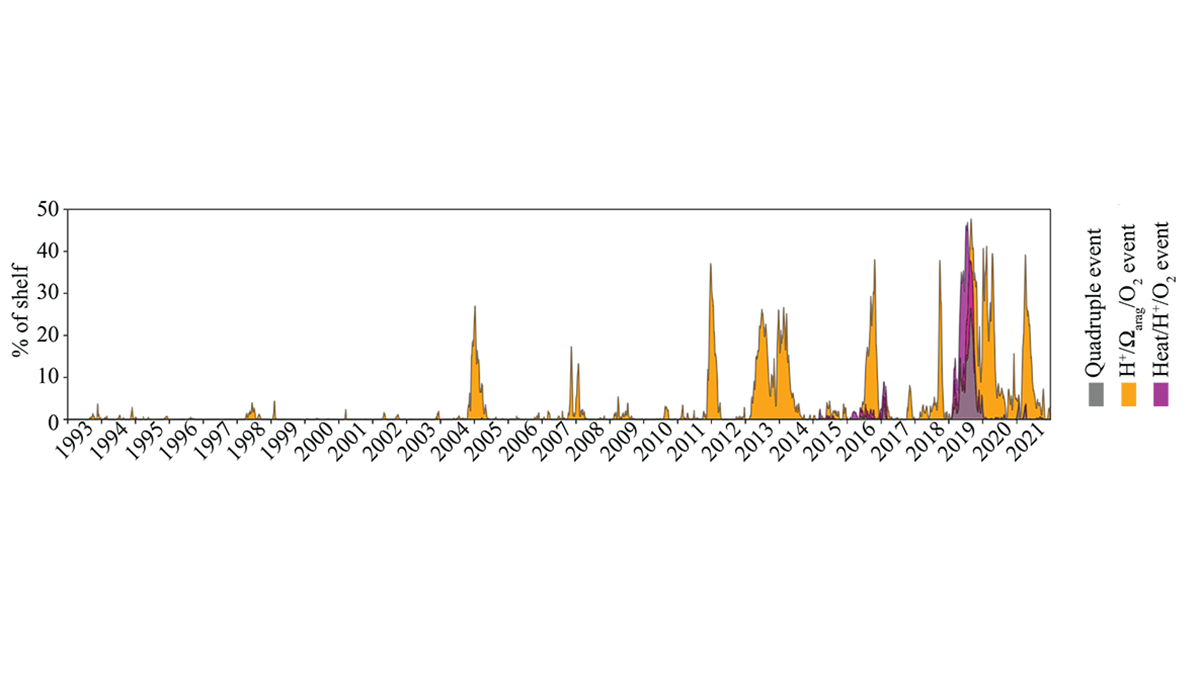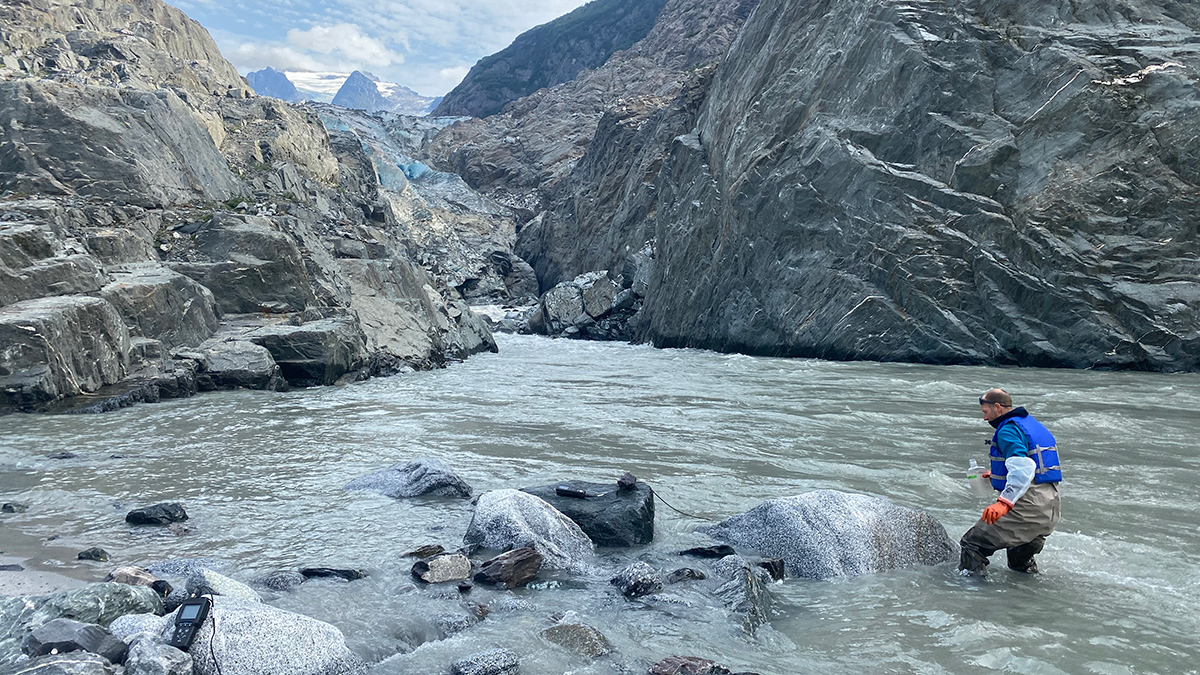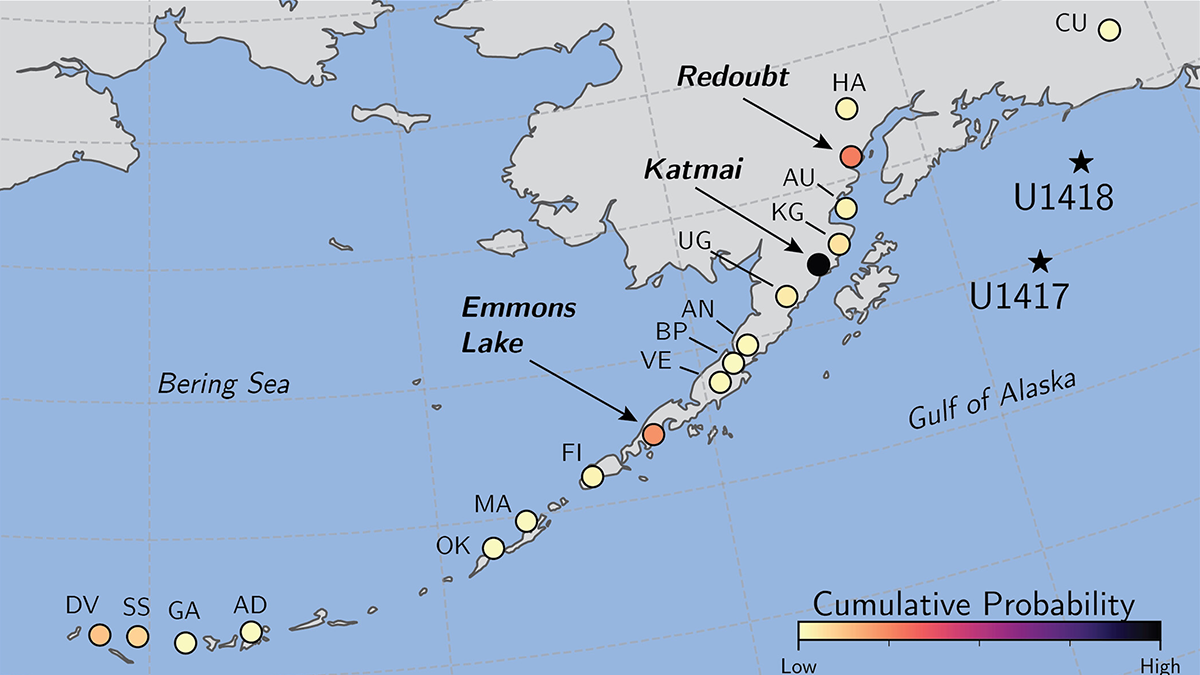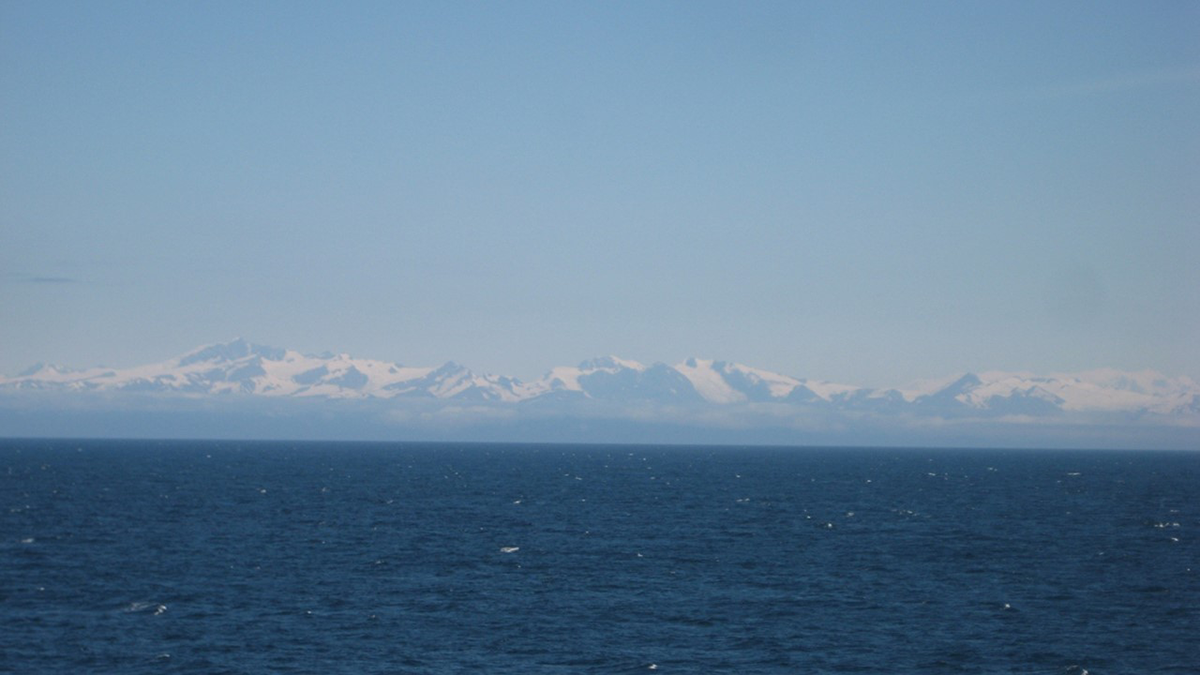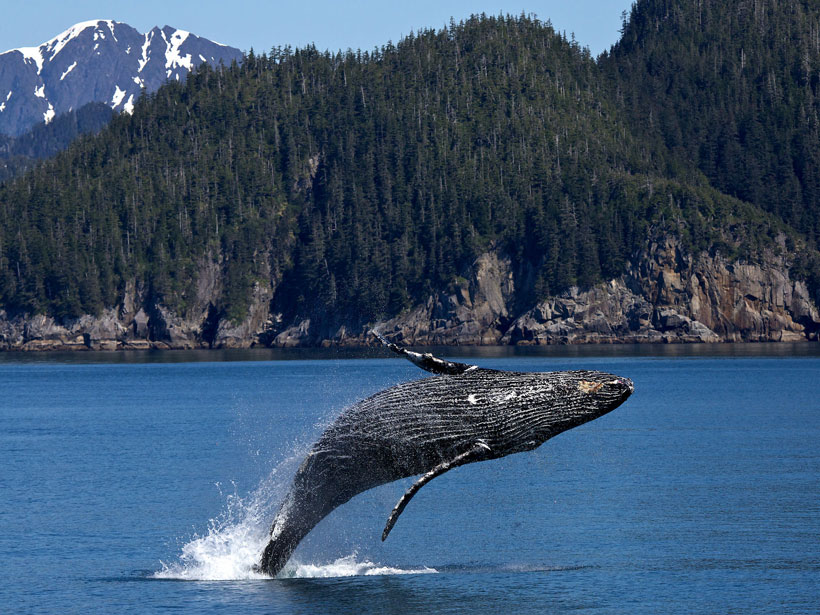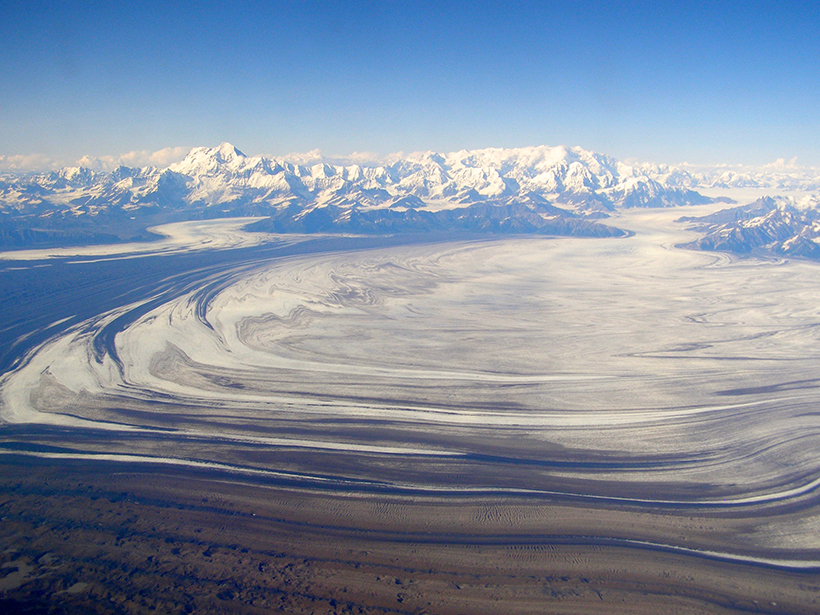A new study goes deep into the Gulf of Alaska to examine the sixth-largest underwater landslide and investigate why a similar event hasn’t happened since.
Gulf of Alaska
Compound Extreme Events Threaten Marine Ecosystems
Short-term extreme marine heat wave events superimposed on stressors from longer-term climate change produce compound extreme events that impact the Gulf of Alaska ecosystem.
Measuring Carbon’s Flow from Land to Sea
A new study catalogs how dissolved inorganic carbon moves through southeast Alaska’s waterways.
Machine Learning Identifies Source Volcanoes of Ash Deposits
Tracing ash layers from explosive eruptions back to their source volcanoes is needed to evaluate hazards to population and aviation, a problem addressed by a new machine learning classification method.
Marine Sediments Reveal Past Climate Responses to CO2 Changes
Climate records stored in marine sediments reveal different ice sheet and ocean responses to falling atmospheric CO2 concentrations from the warm Pliocene to the ice ages of the Pleistocene.
Years After the Pacific Marine Heat Wave, Ecosystem Shifts Persist
Researchers question whether Gulf of Alaska species will return to pre–heat wave conditions.
Determining Dissolved Organic Carbon Flows into the Gulf of Alaska
A new model determines freshwater and dissolved organic carbon discharge to the Gulf of Alaska from one of the most geographically diverse but understudied regions on the planet.
Sediment Layers Pinpoint Periods of Climatic Change
Researchers studying sediment cores from the Gulf of Alaska have pinpointed when the Cordilleran Ice Sheet, now extinct, disgorged icebergs into the Pacific Ocean.
A Mountain Range's History Preserved in Ocean Sediments
Fission track dating core samples from the Gulf of Alaska demonstrates that offshore sediments can be used to reconstruct a mountain range's changing exhumation patterns.

